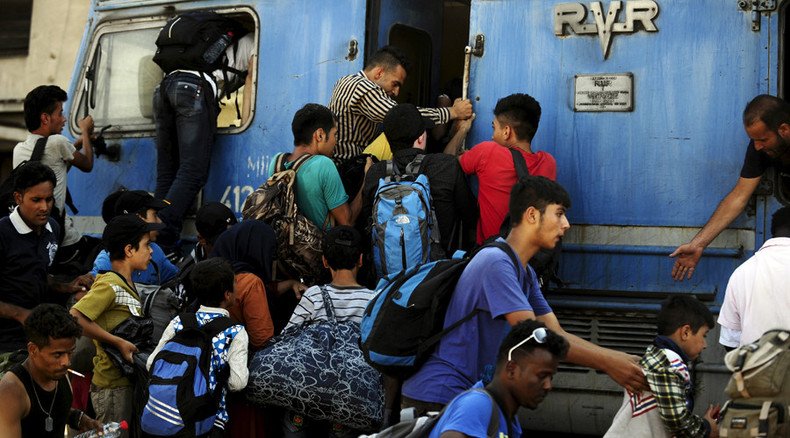Furor in Denmark: Plan for anti-refugee ads scolded by MPs, companies, activists

The government’s plans to run an ad campaign to deglamorize the EU in the eye of would-be migrants have touched Denmark to the quick: the private sector fears it would damage the country’s reputation, while activists have launched a pro-refugee campaign.
Several major businesses officially oppose the government’s initiative to publish advertisements in foreign newspapers to deter refugees from coming to Denmark. In their view, such a measure would be perceived as unfriendly not only by refugees but all foreigners. This would make recruiting employees from abroad more difficult, they claim.
The heads of several major companies doing business in Denmark chimed in on the issue.
“The government is going ahead with full-page advertisements where we tell people that we would rather not see them. That won’t make us any richer, just poorer. So we at Grundfos recommend calling off this initiative,” Kim Nøhr Skibsted, communications director at the Grundfos pump manufacturer, told Jyllands-Posten.
“Essentially it just serves as an example of how harsh the tone has become in relation to foreigners, and it could be worrying what consequences it will have to economic growth in Denmark,” Carsten Hoeck, head of Norisol, said, as quoted by The Local.
“They should drop the campaign,” insists Charlotte Mark, administrative director at the Microsoft Development Center in Copenhagen.
EU plans 4-meter high Eurotunnel anti-immigration fence, points to 'major crisis' (Op-Edge) http://t.co/FpjfS0M6F5pic.twitter.com/LgwDsKzLEa
— RT (@RT_com) July 29, 2015Along with business fears, anti-refugee ads have also provoked an activist campaign on Facebook that has already been joined by about 1,000 Danes and attracted $15,000 (100,000 Danish kroner) in donations. They are set to launch pro-refugee advertisements showing that the government’s position is not the only one in Denmark.
“What we would love to accomplish is to see Danish politicians stop making life harder for the refugees coming here, but we also think that it’s important to let people know in Denmark and abroad that many Danes want to stop this de-humanization of refugees,” said Marianne Rosenkvist, spokeswoman for the initiative cited by The Local.
“On the one hand, we are surprised about the level of support we have gotten. We hadn’t expected that. On the other hand, I’m actually not surprised that there are many who agree with us and would like to show that other voice that also exists in Denmark,” she added.
Anti-refugee ads are also on the wrong side of some Danish politicians.
“The issue is whether you are looking to solve the problems, or if you want to gain from them politically,” Jens Rohde, member of the European Parliament, told Jyllands-Posten.
“I wish our minister – before she sets a lot of things into motion and starts beating her chest on TV to show how tough she is – would visit these countries and actually see what the reality is like in places like Syria, Libya, Greece and the refugee camps,” he added.
“I think Støjberg’s campaign must be the worst branding strategy of the century,” said Social Liberal MP Zenia Stampe.
Denmark to run anti-refugee ads to dissuade asylum seekers http://t.co/BtPivzpBI4pic.twitter.com/SktP3Mno35
— RT (@RT_com) July 26, 2015The Venstre ruling party, however, is firmly committed to its anti-migrant strategy.
“…we have promised our voters that we will introduce measures to stem the flow of asylum seekers, and that is exactly what we are doing with this,” said MP Louise Schack Elholm.
The initiative to publish anti-migrant advertisements in foreign newspapers was announced by Integration Minister Inger Støjberg last week.
Denmark saw its number of asylum seekers almost double last year. There were 14,815 new arrivals in 2014 compared to 7,557 in 2013, and 6,184 in 2012, according to the Danish Immigration Service.












